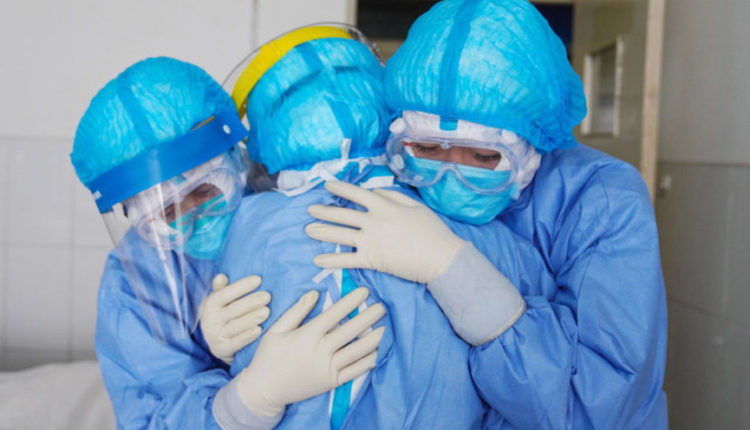Gov’t lists 21 responses initiated to tackle coronavirus pandemic
Finance Minister, Ken Ofori Atta, in his mid-year budget review, has reiterated the various interventions by the government under the Coronavirus Alleviation Programme (CAP) to ease hardships.
Ofori Atta explained that all these costs “came at a time of reduced revenue at the ports, a fall in global oil prices, a near collapse of hospitality industry and a general decline in global trade.”
Most businesses have been forced to shut down since the outbreak of the novel coronavirus in March, with others barely standing on its feet.
Schools, hotels, churches, event companies are among the few who have been greatly hit by the deadly virus.
The government, as part of its efforts to reduce the economic hardship brought by the virus, introduced some economic and financial interventions for Ghanaians.
The relief packages proposed by the government covered health, education, hospitality industry, deprived communities, small and medium scale industries.
Under the Coronavirus Alleviation Programme
Health
- Government proactively put together the GH¢560 million (US$100 million) National Emergency Preparedness and Response Plan (EPRP)
-
- The capacity of scientific research and testing teams at the three original designated testing institutions have been significantly expanded to 10 sites over the last four to six weeks.
-
- Government provided 3.6million reusable face masks, 50,000 medical scrubs, 90,000 hospital gowns, and 90,000 head covers to the health facilities from the 9th April to 30th June, 2020
-
- Government has provided a life insurance package worth GH¢10.3 million for those directly involved in surveillance, case management, laboratory, and all other health and allied personnel who get infected.
-
- Additional provision was made for overtime and risk-based payments for key frontline workers.
- Transport costs and costs of sustenance for contact tracers and field surveillance officers were also absorbed by Government
- Government waived personal income taxes for 137,000 health workers, offered allowance of 50 percent of basic salary for about 10,000 frontline health workers, and provided them transportation for the duration of the lockdown. These direct reliefs to health workers cost Government additional GH¢320 million
Social
-
- Government substantially covered the cost of electricity and water services from April-June, 2020. [Supply households with free water and free electricity to over 50% of the population]
-
- Government fully covered the cost of consumption of the one million lifeline customers and subsidised 50 percent of the consumption of all other customers. The total cost of the Water Relief Programme to Government is projected at GH¢275.5 million out of which GH¢199.3 million had been paid by end-June 2020.
-
- Government through the Gender Ministry and NADMO provided 1,827,581 and 917,142 cooked food packs to vulnerable persons within Accra and Kumasi respectively. [Cost: GH¢54.3]
-
- In collaboration with Faith-Based Organizations, Government also distributed dry food packages to about 470,000 families.
-
- A total of 600,000 face masks were supplied to the tertiary institutions.
-
- 1,700 Veronica buckets, 200,000 litres of alcohol-based hand sanitizers, 3,400 litres of liquid soap, and 900 thermometer guns were distributed
- All the 1,167 Senior High Schools (SHS) in the country were fumigated and disinfected.
- Government also provided 2.4 million pieces of re-usable face masks to students, teaching and non-teaching staff, invigilators and school administrators, with each person receiving three pieces.
Economic
- Government procured PPEs consisting of 50,000 hospital scrubs costing GH¢6.0 million as well as 90,000 medical gowns and caps valued at GH¢6.75 million were produced by the local textile firms.
-
- In addition, 15 million face-masks, out of which 5 million and 10 million were supplied to frontline health workers and schools, respectively, at a cost of GH¢65.0 million
-
- The CAP Business Support Scheme (CAP-BuSS) of GH¢600 million was designed to specifically support micro, small and medium-sized enterprises (MSMEs)
-
- The Scheme established the Adom Micro Soft Loans for micro enterprises which are being disbursed through the Vodafone mobile money platform. The Anidasuo Soft Loans, targeted at small and medium enterprises, will be disbursed through participating financial institutions.
-
- Through the Scheme, TIN registration in Ghana increased from approximately 110,000 a month to 815,449 from 19th May, 2020 to 30th June, 2020, thereby supporting Government’s agenda to formalise the informal sector
- The COVID-19 National Trust Fund established under Act 1013 in April 2020 had mobilised about GHȼ53 million from individuals, churches, corporate bodies, staff of organisations, non-governmental organisations, groups, and associations, among others as at end June, 2020



